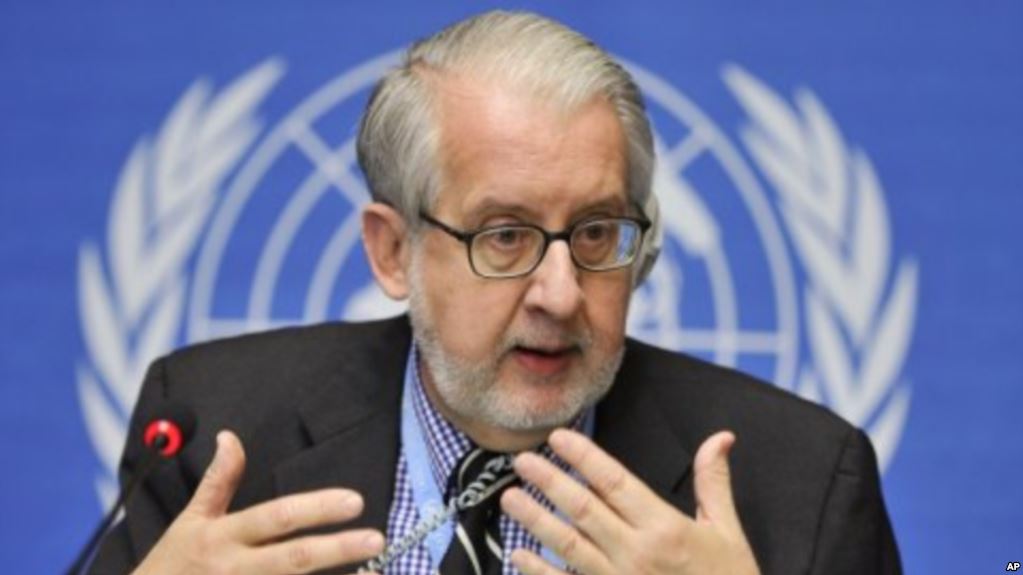London, Geneva- UN investigators said on Friday they had evidence that the Syrian regime was responsible for a Sarin gas attack on Khan Sheikhoun that killed 87 people on April 4.
In the first UN report to formally refer to the regime’s responsibility, the UN commission of inquiry on the human rights situation in Syria announced on Wednesday that it had collected “a large amount of information” indicating that a Syrian aircraft was behind the horrific chemical attack on April 4.
“On April 4, as part of an airstrike… the Syrian air force used Sarin gas, killing more than 80 people, most of them women and children,” the report said.
“All the evidence can prove that there are enough objective reasons to believe that the air force dropped a Sarin gas bomb,” it added.
Wednesday’s report described the Khan Sheikhoun attack as a war crime and blamed the Syrian regime for at least 23 other chemical attacks, AFP reported. AP, for its part, quoted officials as saying that the regime was responsible for 20 of the 25 attacks since 2011.
“The lack of access to information did not prevent us from reaching facts or reasonable conclusions about what happened during the attack and who was behind it,” the committee’s chairman, Paulo Pinheiro, told a news conference.
UN investigators said they had documented a total of 33 chemical attacks to date, in their 14th report since 2011. They added that Syrian government forces carried out 27 attacks, including 7 between March 1 and July 7.
The investigators, who were prohibited by the Syrian authorities to access the territory to conduct their investigations, said they based their conclusions on photographs of rocket fragments, satellite images and eyewitness accounts.
They concluded that a Sukhoi 22 launcher, only owned by Syrian warplanes, carried out four strikes on Khan Sheikhoun at around 6:45 am on April 4.
While Damascus and its ally Moscow confirmed that chemicals had spread in the air after an air strike hit an arms depot producing chemical munitions and belonging to opposition factions, investigators rejected the suggestion, asserting that they had found no evidence to support the allegations.
